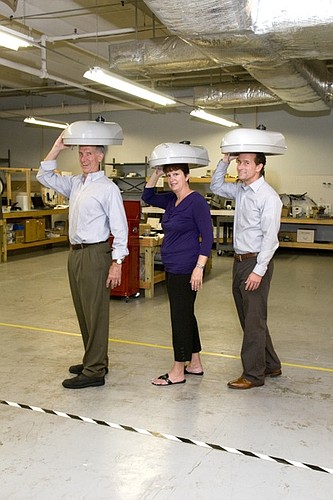- December 13, 2025
-
-
Loading

Loading

REVIEW SUMMARY
Business. Sunovia Energy Technologies
Industry. Energy, lighting
Key. Company shifted its focus from solar to LED lights.
The solar business has gone dark for one ambitious Gulf Coast company, despite four years of valiant efforts and more than $70 million in losses.
But while solar at Sarasota-based Sunovia Energy Technologies flamed out, the company isn't dead yet. Its new plan, still grand, is to build a national company in the outdoor light emitting diodes industry (LEDs).